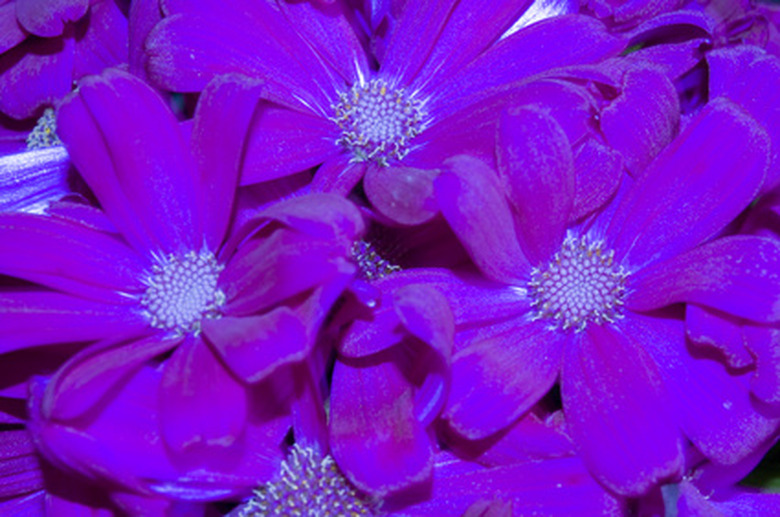List Of Winter Flowers Of Alabama
Alabama falls within a humid subtropical climate, which typically means hot, muggy summers and milder winters. Alabama gardeners often use flowers to add color to their winter landscapes. If you live in Alabama, choose flowers according to bloom time, flower color, intended use and general culture. Various flowering plants perform well in Alabama's winter weather.
White Troutlily
The white troutlily (Erythronium albidum), also known as the dogtooth violet and the adder's tongue, belongs to the lily plant family (Liliaceae) and naturally occurs in Alabama thickets. This herbaceous perennial features white, bell-like flowers that appear from the late winter through mid-spring. The white troutlily also bears green leaves often mottled with maroon or purple spots. This winter-blooming flower likes rich, humusy soils in partially to fully shady positions. Gardeners often use white troutlily plants as ground covers in prairie gardens or woodland gardens.
- Alabama falls within a humid subtropical climate, which typically means hot, muggy summers and milder winters.
- Gardeners often use white troutlily plants as ground covers in prairie gardens or woodland gardens.
Walter's Violet
The Walter's violet (Viola walteri), sometimes called the prostrate blue violet, thrives in Alabama's moist woodland soils. This Violaceae plant family member blooms from late winter through early spring, featuring purple blossoms on stems that reach up to 6 inches in height. This herbaceous perennial also bears evergreen, pale green leaves. This violet species likes moist, acidic soils in partially to fully shady locations. Walter's violets generally perform well in shade gardens and shady woodland gardens.
Scarlet Sage
The scarlet sage (Salvia coccinea), also known as the blood sage and the tropical sage, belongs to the mint family (Lamiaceae) and grows well in thickets and chaparrals across Alabama. This sage plant variety features showy spikes of red, pink or white flowers from February through October. The square stems generally range from 12 to 36 inches in height. This herbaceous perennial prefers sandy or caliche soils in either shady or sunny locations. Gardeners often use scarlet sage in perennial gardens, open woodland gardens and butterfly gardens.
- The Walter's violet (Viola walteri), sometimes called the prostrate blue violet, thrives in Alabama's moist woodland soils.
- This Violaceae plant family member blooms from late winter through early spring, featuring purple blossoms on stems that reach up to 6 inches in height.
Yellow Butterwort
Yellow butterwort (Pinguicula lutea), a member of the bladderwort plant family (Lentibulariaceae), naturally occurs in Alabama's moist pinewoods and savannas. This carnivorous plant species bears rosettes of sticky, green leaves designed to trap and digest insects. The flowering stems reach up to 20 inches in height and produce spurred, yellow flowers from late winter through late spring. This butterwort species grow best in acidic, low-nutrient soils that receive plenty of sunlight. Gardeners typically plant yellow butterworts in sandy bog gardens and open woodland margins.
Golden Groundsel
The golden groundsel (Packera obovata), sometimes called the squawweed or the roundleaf ragwort, belongs to the aster plant family (Asteraceae) and likes rich, humusy soils in partially to fully shady locations. Golden groundsel plants feature yellow flower clusters from February through the early summer. Mature plants reach up to 18 inches in height. Alabama gardeners often use golden groundsel in shady borders and shaded garden areas.
- Yellow butterwort (Pinguicula lutea), a member of the bladderwort plant family (Lentibulariaceae), naturally occurs in Alabama's moist pinewoods and savannas.
- Golden groundsel plants feature yellow flower clusters from February through the early summer.
